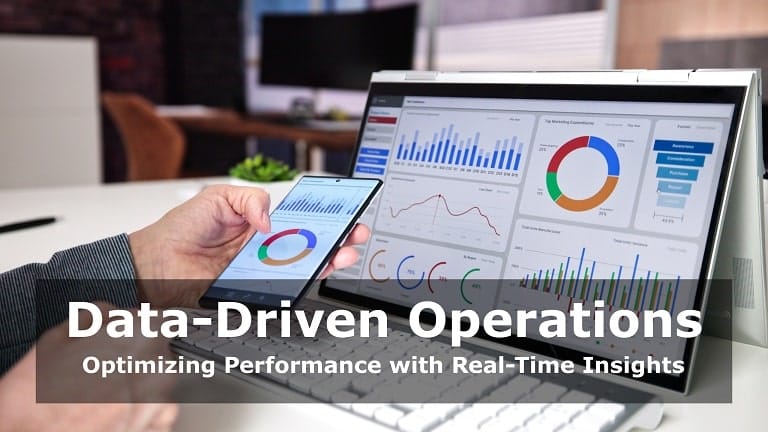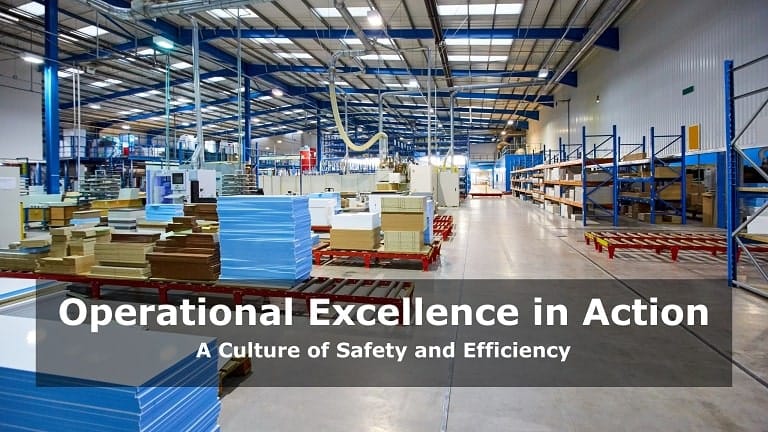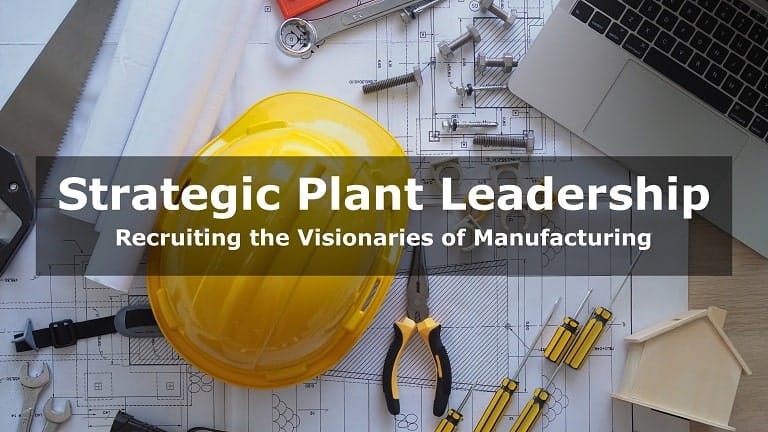In today’s fast-paced manufacturing environment, the Plant Manager is no longer just a supervisor on the shop floor—they’re a strategic business leader who directly impacts profitability, efficiency, safety, and growth. Hiring the right Plant Manager requires more than checking off a skills list; it calls for finding someone who aligns with your plant’s culture, goals, and future vision. That’s where specialized plant manager recruiters come in. With deep industry knowledge and access to top-tier talent, they help organizations identify leaders who deliver measurable results. This guide explores the evolution of the Plant Manager role, essential competencies to look for, and how expert recruiters like JRG Partners navigate the hiring process to place the right candidate in this mission-critical position.
The Evolution of the Plant Manager Role

The role of the Plant Manager has evolved dramatically from its traditional roots. Once seen primarily as a floor supervisor, tasked with managing production schedules, supervising staff, and ensuring machinery was running smoothly, today’s Plant Manager is a strategic leader with broad organizational responsibilities.
This transformation is shaped by several key factors:
Shift from Operations to Strategy
Modern Plant Managers now play a direct role in P&L ownership, making decisions that impact profitability, cost control, and capital allocation.
They are expected to contribute to long-term growth plans, innovation strategies, and performance improvement initiatives.
Rise of Automation & Industry 4.0
With advanced manufacturing technologies, IoT, robotics, and real-time data analytics, the role now demands tech-savvy leaders who can integrate systems and processes for greater efficiency.
Plant Managers must now analyze operational data to make informed, strategic decisions that impact quality, throughput, and sustainability.
Responding to Global Disruptions
Global challenges like supply chain disruptions and labor shortages have expanded the Plant Manager’s role in risk management and contingency planning.
They must ensure continuity, resource optimization, and supply resilience across diverse operational environments.
Cross-Functional Leadership
Today’s Plant Managers collaborate with HR, finance, procurement, engineering, and sales to align plant performance with business goals.
They act as a bridge between executive leadership and on-ground teams, ensuring strategy is translated into action.
Broader Business Impact
Beyond operational KPIs, modern Plant Managers are seen as catalysts for cultural transformation, innovation, and workplace safety.
Their ability to lead change, manage diverse teams, and drive continuous improvement has made them indispensable to organizational success.
Recruiters and companies must adapt their approach to reflect this shift—focusing not just on experience but on strategic potential and cross-functional capability.
Key Competencies to Look for in a Plant Manager
Finding the right Plant Manager goes far beyond evaluating resumes. It requires a deep understanding of the core competencies that enable a leader to drive results across operations, people, and profitability. Below are the essential skills and traits that plant manager recruiters prioritize when identifying top talent:
1. P&L and Financial Acumen
Today’s Plant Managers are expected to own the plant’s financial performance. This includes:
Managing profit & loss statements
Driving cost control and budget discipline
Understanding capital expenditure and return on investment
Their financial insight enables them to align operational decisions with broader business objectives.
2. Lean, Six Sigma, and Operational Excellence

Top-performing Plant Managers are well-versed in:
Lean Manufacturing principles
Six Sigma methodologies, such as DMAIC
Continuous improvement frameworks
They use data to eliminate waste, streamline production, and boost quality—essential for competitive and efficient plant operations.
3. People Leadership & Communication
Leadership extends beyond task delegation. Strong candidates demonstrate:
The ability to build and retain high-performing teams
Effective union relations and labor negotiations
Clear and consistent communication across all levels
Great Plant Managers inspire, coach, and align diverse teams toward shared goals.
4. Safety Culture Champion
Workplace safety is non-negotiable. The right candidate will:
Promote a proactive safety culture
Ensure compliance with OSHA and industry regulations
Lead risk management initiatives that prevent incidents
5. Change Management
In a fast-evolving manufacturing landscape, adaptability is key. Look for Plant Managers who can:
Lead digital transformation efforts
Embrace and implement new technologies
Navigate organizational change with resilience and clarity
These competencies are not just checkboxes—they’re indicators of a leader who can transform a plant into a high-performing, resilient, and profitable operation.
The Ideal Plant Manager Profile: What Great Recruiters Know

Hiring a Plant Manager is not a plug-and-play process. It requires a strategic lens and a deep understanding of what success looks like in each unique operational environment. Experienced plant manager recruiters, like those at JRG Partners, know that the most effective hires are made by identifying not just qualifications, but the right leadership DNA.
Tailored Success Profiles
No two manufacturing plants are alike. A plant in the automotive sector demands a different leadership approach than one in food processing or pharmaceuticals. That’s why we start every search by building a custom success profile. We analyze factors like plant size, regulatory pressures, production goals, and team dynamics to define the specific qualities needed in a Plant Manager. This ensures we find someone who is technically sound and operationally aligned.
Stabilization vs. Growth Leadership
One of the most overlooked aspects of hiring is understanding the strategic stage of the plant.
A maintenance-first leader is ideal when the goal is to stabilize output, reduce downtime, and reinforce compliance and quality controls.
A growth-oriented Plant Manager thrives in high-growth environments where scaling production, launching new lines, or implementing change initiatives is the priority.
Matching leadership style to business need is crucial to long-term success.
Cultural Fit and Regional Nuances
Beyond technical and strategic alignment, cultural fit plays a massive role. We assess leadership style—whether the company needs a hands-on floor leader or someone focused on long-term transformation. Additionally, geographic considerations matter. A Plant Manager relocating to a rural area or managing union-heavy labor forces must possess the adaptability and interpersonal skills to succeed locally.
In the end, a truly ideal Plant Manager is not just a skilled operator, but a transformational leader. At JRG Partners, we go beyond resumes to identify candidates who can inspire teams, optimize performance, and elevate plant operations—driving sustainable success for the business.
The Recruitment Process: How to Hire a Game-Changing Plant Manager
Hiring a high-impact Plant Manager requires more than just scanning resumes—it takes a structured, strategic recruitment process. Experienced plant manager recruiters, like those at JRG Partners, follow a proven methodology to ensure the right hire for each unique operation.
Step 1: Discovery & Role Definition
The process begins with an in-depth discovery session with the client. Recruiters seek to understand the plant’s current challenges, performance expectations, leadership gaps, and key success metrics. This helps define the ideal candidate profile, including both technical skills and cultural fit.
Step 2: Talent Sourcing Strategy
Next comes a multi-channel sourcing strategy, combining:
Passive candidate outreach through industry networks
Headhunting top performers currently employed
Tapping into internal referrals or previous executive talent pools
This ensures access to a wide, high-quality talent pipeline—not just active job seekers.
Step 3: Screening for Leadership & Fit
Once candidates are identified, recruiters conduct rigorous screening interviews to evaluate:
P&L ownership and operational achievements
Leadership ability, team-building, and communication
Soft skills, adaptability, and alignment with the plant’s culture and goals
Step 4: Shortlisting & Presenting Finalists
Only the top-qualified candidates move forward. Recruiters present a curated shortlist with detailed profiles, interview insights, and a comparative analysis—saving the hiring team valuable time.
Step 5: Offer Negotiation & Onboarding Support
Finally, recruiters guide clients through offer structuring, negotiation, and onboarding planning to ensure a seamless transition. Support may also include relocation assistance, executive coaching, or 30-60-90 day ramp-up planning.
With a clear process and industry-specific insight, specialized recruiters help companies secure Plant Managers who deliver lasting operational and financial impact.
Why Work with Plant Manager Recruiters Like JRG Partners
Finding the right Plant Manager can make or break a facility’s performance. It’s not just about filling a vacancy—it’s about securing a strategic leader who can drive production, improve margins, build strong teams, and foster a safety-first culture. That’s why working with plant manager recruiters like JRG Partners is a strategic investment, not just a hiring decision.
Deep Industry Connections
JRG Partners has spent years building trusted relationships across multiple manufacturing sectors, including automotive, food and beverage, pharmaceuticals, consumer goods, and heavy industry. These connections allow us to tap into exclusive talent pools—including high-performing passive candidates who aren’t actively job-seeking but may be open to the right opportunity.
Customized, Industry-Specific Searches
We recognize that every plant is different—and so is every Plant Manager role. A leader suited for a lean, fast-moving food processing facility may not be the right fit for a complex, highly regulated pharmaceutical plant. That’s why our approach is always tailored to the client’s industry, plant size, culture, and goals. Whether you’re scaling operations or stabilizing performance, we build the ideal candidate profile and pursue talent that aligns with your exact needs.
Commitment to Quality, Fit, and Confidentiality
At JRG Partners, recruitment isn’t about volume—it’s about precision. We thoroughly vet every candidate for technical expertise, leadership style, cultural compatibility, and long-term potential. Our clients trust us with confidential executive-level searches, knowing that discretion and professionalism are at the heart of everything we do.
Proven Results
We don’t just fill roles—we deliver leaders who drive measurable results. Our placements consistently lead to improved operational efficiency, reduced downtime, better safety records, and stronger team performance.
When you partner with JRG Partners, you’re not just hiring a recruiter—you’re engaging a strategic search partner who understands the impact a great Plant Manager can have.
Conclusion
The modern Plant Manager is a pivotal force behind operational success—balancing strategy, leadership, safety, and financial accountability. As manufacturing becomes more complex and competitive, the demand for highly skilled plant leaders will only increase. Partnering with experienced plant manager recruiters, like JRG Partners, ensures your organization gains access to candidates who are not only technically proficient but also culturally aligned and future-ready. From building a tailored candidate profile to managing the full recruitment lifecycle, the right recruiting partner brings precision, speed, and insight to the search process. If you’re ready to hire a Plant Manager who can truly transform your operations, now is the time to leverage the expertise of a recruiter who understands what great leadership looks like. Learn more about our full suite of manufacturing executive recruitment services at JRG Partners, where we specialize in placing leaders who deliver results across every level of the manufacturing operation.


